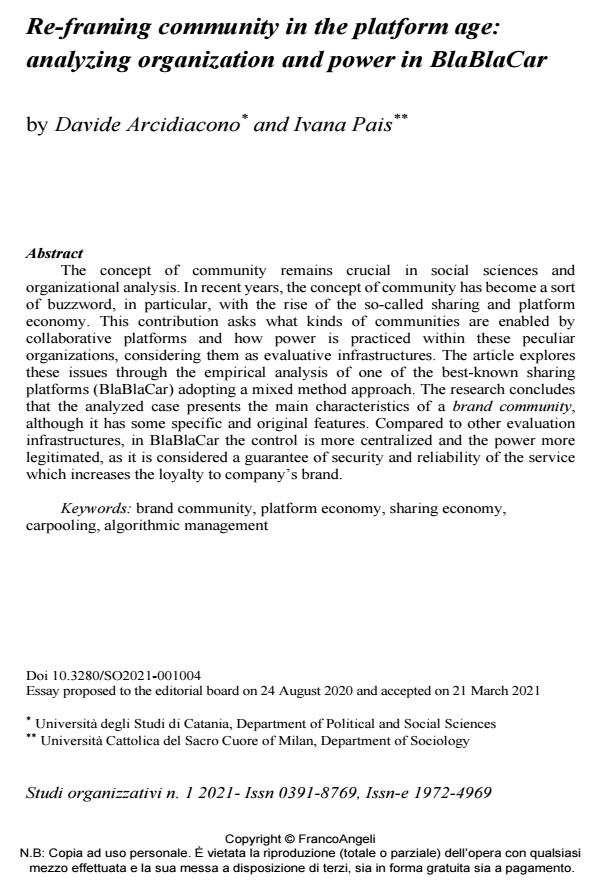Ridefinire il concetto di comunità nell'era delle piattaforme: un'analisi del modello organizzativo e del potere in BlaBlaCar
Journal title STUDI ORGANIZZATIVI
Author/s Davide Arcidiacono, Ivana Pais
Publishing Year 2021 Issue 2021/1
Language English Pages 26 P. 79-104 File size 327 KB
DOI 10.3280/SO2021-001004
DOI is like a bar code for intellectual property: to have more infomation
click here
Below, you can see the article first page
If you want to buy this article in PDF format, you can do it, following the instructions to buy download credits

FrancoAngeli is member of Publishers International Linking Association, Inc (PILA), a not-for-profit association which run the CrossRef service enabling links to and from online scholarly content.
The concept of community remains crucial in social sciences and organizational analysis. In recent years, the concept of community has become a sort of buzzword, in particular, with the rise of the so-called sharing and platform economy. This contribution asks what kinds of communities are enabled by collaborative platforms and how power is practiced within these peculiar organizations, considering them as evaluative infrastructures. The article explores these issues through the empirical analysis of one of the best-known sharing platforms (BlaBlaCar) adopting a mixed method approach. The research concludes that the analyzed case presents the main characteristics of a brand community, although it has some specific and original features. Compared to other evaluation infrastructures, in BlaBlaCar the control is more centralized and the power more legitimated, as it is considered a guarantee of security and reliability of the service which increases the loyalty to company’s brand.
Keywords: Brand community, platform economy, sharing economy, carpooling, algorithmic management
Davide Arcidiacono, Ivana Pais, Re-framing community in the platform age: analyzing organization and power in BlaBlaCar in "STUDI ORGANIZZATIVI " 1/2021, pp 79-104, DOI: 10.3280/SO2021-001004